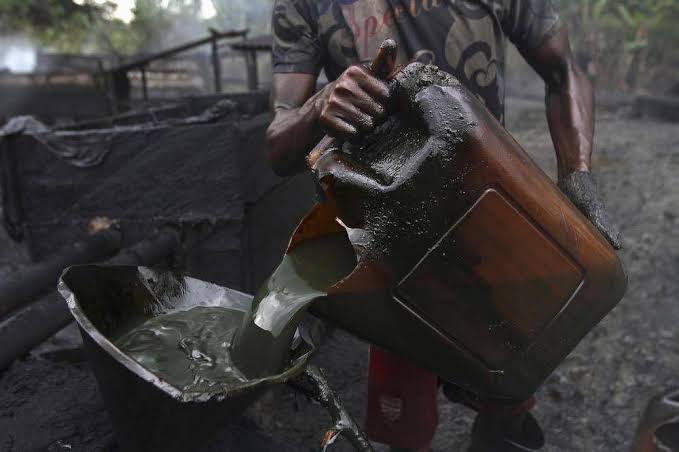The discovery and exploration of crude oil in the Niger Delta — spanning Delta, Bayelsa, Abia, Rivers, Cross River, Akwa Ibom, Imo, Edo, and Ondo States — once promised economic growth, job creation, and significant national revenue. Yet today, it also represents a profound tragedy: the slow but steady destruction of lives, livelihoods, and ecosystems.
In a region that should be thriving, oil theft once a desperate cry against neglect and marginalization has evolved into the dangerous business of illegal refining, infamously known as “Kpofire”. What began as agitation has metastasized into a full-blown crisis.
It is no longer news that the Niger Delta environment has suffered terribly from the operations of International Oil Companies (IOCs). What remains an ongoing debate, however, is the devastating role that artisanal oil theft and refining now play in worsening that damage.
Some argue that illegal oil businesses have brought relative calm to a previously volatile region, providing an alternative livelihood for youths and ex-militants after the Presidential Amnesty Programme. They point to the ingenuity of these local refiners, who use crude technology to produce diesel that reportedly rivals imported products in quality.
Yet at what cost?
According to the Nigerian Extractive Industries Transparency Initiative (NEITI), Nigeria recently lost 53 million barrels of crude oil — worth over $2 billion — to illegal refining activities. Beyond the staggering economic loss is the even more heartbreaking reality: the countless lives lost in explosions, toxic exposures, and environmental degradation, often without documentation, mourning, or justice.
Kpofire kills — daily, silently, and steadily.
The fields and forests of the Niger Delta have turned into graveyards for young men and women whose only crime was seeking survival.
While government agencies lament revenue loss, and experts discuss policy frameworks, little attention is paid to the human toll of this illicit industry. No official record captures the number of Rivers State and Niger Delta residents who have perished while operating makeshift refineries.
How many more must die before action is taken?
The Way Forward
It is time for urgent, courageous action. The Federal Government must rethink its approach. Scaling up local technologies and formally integrating indigenous operators into the mainstream oil and gas industry could be a game-changer.
Training, licensing, and empowering these local players would not only reduce pipeline vandalism but also give them a stake in a legal economy saving lives in the process.
However, the process must be fair. It must prioritize those directly impacted by the crude oil economy, the local refiners who risk their lives daily and not simply favour powerful business elites. Anything less would only deepen the injustice.
The Niger Delta deserves better. Its people deserve better. Nigeria deserves better.
Until then, the question remains: How many more must die from Kpofire before we act?



